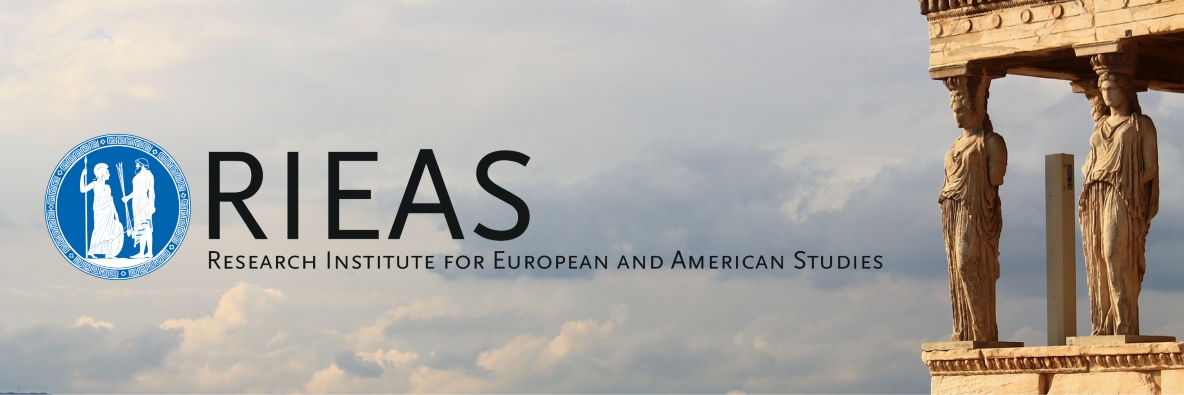Michaletos Ioannis
(RIEAS Analyst)
Copyright: www.rieas.gr
The Albanian state is heavily dependent on USA influence that spans through the entire military and security apparatus, as is the case in Kosovo and in general in all Albanian populated Balkan communities.
Historically, the Albanians were prone into embedding into stronger states that were characterized by global influence and were not neighbors of them. Examples include the Turks (Ottoman Empire), the German-Italian Axis, the Soviets, the Chinese and USA lately. The result in each case was catastrophic for the Albanians since their stance resulted in the alliance of their Balkan neighbors and the alienation of Tirana from major world developments that occur often in history and change dramatically the balance of powers in the Balkan region.
In a purely military level, Albania is on the process of replenishing its arms arsenal from the Soviet & Chinese era to the NATO one, a trend that will accelerate by the forthcoming entrance to the Alliance of Albania. Currently Albanian troops serve in Afghanistan, Iraq and a small force is going to be deployed in Chad.
On an economic level, the world crisis has affected the domestic economy with official inflation running at 5% and 25-30% of the population below poverty line. It has to be noted that approximately 30% of the citizens have emigrated mainly to Greece, Italy, Germany and USA and their remittances are the main source of hard currency in the country.
The current Administration laid by PM Berisha has created grievances regarding his role in the dominance of the Northern Albanian clans in which he is a leading member in expense of the Southerners who are mostly inclined to support the Socialist opposition.
The Tirana explosions in early March 2008 that cost the lives of tens of residents, revealed a world class contraband network that exported illegally armaments to countries such as Afghanistan. The details so far reveal involvement of American officials and there is an FBI investigation over the past few months in order to verify rumors of misconduct by USA Diplomats and companies.
Another interesting aspect of the internal political life that has indirect security implications is the involvement of the Berisha family in recent real estate acquisitions in the Greek minority populated region of the country, a culmination that strains the relations between the two states.
On early July 2008 the city of Vlora`s Periphery Council approved for the second time the “Kakomea Project Beach” in collaboration with the “Club Med”. According to the Parliamentarian Erion Brace, the daughter of Berisha is linked directly both “Club Med” and the “Best Property Albania". On June 2008, the well-known Albanian publicist Fatos Lubonja accused the Albanian Mafia of supporting politically the Prime Minister Sali Berisha.
Lubonja appeared on a TV along with the Tourism Minister of Albania Ylli Pango and the Director of World Bank Project for Ionian Coast Jamarber Maltezi (son in law of Prime Minister Berisha). Berisha’s daughter, Argita Maltezi, who is an attorney, allegedly represents the “Best Property Albania" according to the Parliamentarian of the Albanian Socialist Party Erion Brace. It seems that there is going to be a development regarding the family business conducts of the leading Albanian politician and the delicate balances within the political system.
Other recent developments are the destruction through arson of Greek-Byzantine era Churches that according to reliable information are being conducted by Northern Albanians linked with organized crime networks that seek to buy depreciated land in the South. Moreover there is increased Bulgarian involvement within the Slavic communities in the Southeastern part of the country which are also contested by FYROM.
Breakdown of Armed Forces:
Land Forces: 6,000 personnel
Battle tanks (40 units, Type 59: Chinese made)
Armored vehicles (130 units, M-113: USA made & Type 63: Chinese type)
MLRS (18 units, 130mm)
Antitank systems (30 units, HJ-73 type)
Antiaircraft systems (120 units, M-1939 & S-60 types)
Navy: 1,000 personnel
Patrol vessels: 12
Mine war vessels: 4
Support vessels: 1
Air force: 1,300 personnel
The Albanian pilots flight on average 10-15 hours per annum, which is 7-10% of the minimum hours required by NATO standards and is less than 3-5% of the standard air time conducted by the Greek & Turkish Air forces.
Helicopters: 23
Anti-aircraft systems: 12 SA-2 Guideline systems, 18 HN-5A systems plus 34 units of 37mm machine guns.
Paramilitary forces
Border guards: 500 personnel
Gendarmerie: Approximately 400 personnel
Coast Guard: Approximately 300 personnel & 11 vessels
In general the Albanian Armed forces are considered as the weakest in the Balkans and can only be compared with those of Montenegro, although the latter has much stronger paramilitary forces. A safe prediction is that Albania’s NATO entrance will call for the acquisition of modern armaments which in turn will heavily strain the economy in parallel with the re-engineering of the personnel deployment and the admission of a considerable number of professional soldiers. The Albanian Armed Forces do not constitute a threat in the established Balkan balance of powers, even if they are used in conjunction with a larger force, i.e. Turkey.
Sources:
1)http://rieas.gr/index.php?option=com_content&task=view&id=691&Itemid=42
2) Greek Defense Bible 2008, DefenceNet Publications. P. 134-135
